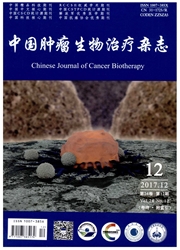

 中文摘要:
中文摘要:
越来越多的证据表明,炎性微环境在肿瘤的发生、发展中发挥着重要的促进作用,炎性因子介导的信号通路参与了肿瘤细胞的恶性演进。细胞上皮-间质转型(epithelial-mesenchymal transition,EMT)是肿瘤恶性演进过程中的关键机制,炎性细胞因子(白细胞介素、TNF-α、TGF-β等)、EMT的关键转录因子[锌指E盒结合同源盒蛋白(zinc finger E-box-binding homeobox,ZEB)、Snail和Twist等]及某些miRNA(let-7、miR-200等)共同构成复杂的调控网络,调控肿瘤细胞的表型转化、药物抗性的产生、肿瘤干细胞(cancer stem cell,CSC)的增殖及自我更新。本文将重点讨论炎症及相关信号通路在肿瘤发生、发展以及CSC形成过程中的调控机制。
 英文摘要:
英文摘要:
Increasing evidence indicated that tumor inflammatory microenviroment plays an important role in cancer initiation and development.The signaling pathways mediated by inflammatory cytokines participate in malignant transformation of tumor cells.Epithelial-mesenchymal transition(EMT) is a critical mechanism underlying transformation of tumor cells.A network composed by inflammatory cytokines(interleukin,TNF-α and TGF-β),key transcription factors of EMT,including zinc finger E-box-binding homeobox(ZEB),Snail and Twist,and some miRNAs(let-7 and miR-200) regulates malignant transformation of tumor,generation of drug resistance and the proliferation and the self-renewal of cancer stem cell(CSC).This article reviews the recent studies on the molecular mechanisms,by which inflammation and related signaling pathways regulate tumor initiation,development and CSC formation.
 同期刊论文项目
同期刊论文项目
 同项目期刊论文
同项目期刊论文
 期刊信息
期刊信息
